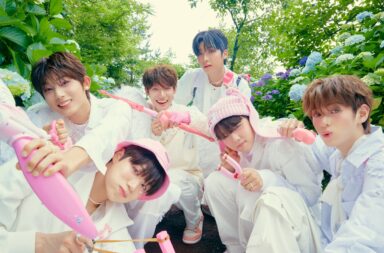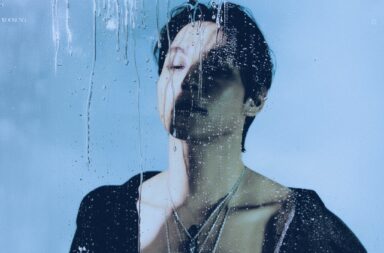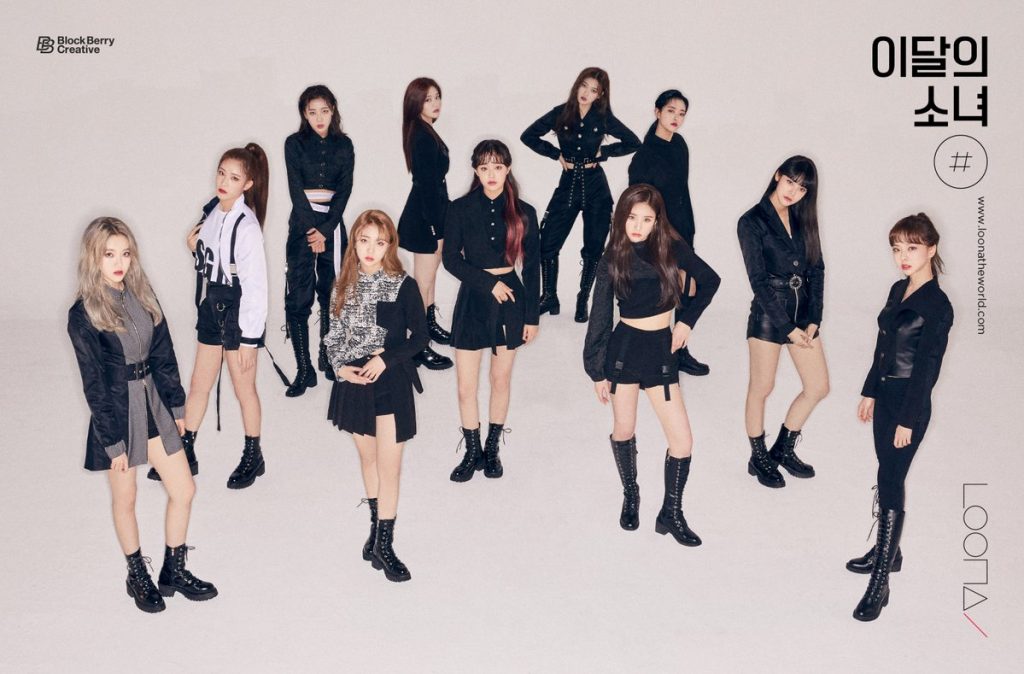
Expectations for Loona‘s return with # were high, especially since the group’s sound and creativity has been on an upward curve since their pre-debut tracks. In fact, it was “Butterfly” that got me hooked onto the group and got me anticipating their next album. With their choreography and tendency to gravitate towards urban R&B and dance-pop, Loona has created a distinct brand with regards to their sound.
As such, it was no surprise that an announcement of Lee Soo-man having a part in the production of # threw many people off. After all, the classic SMP genre is a far cry from the musical tone Loona has been exploring thus far.
Perhaps the strongest influence would come off in “So What”, the title track. It’s an overpowering track, with a lot of instrumental noise which can credited to be the overlapping of snares, drums, synths, bass and a hint of space-electro sounds. In its overproduction, “So What” is unbalanced instrumentally. Despite the noisy backing instrumental, the verses hold their own, and are reminiscent of an Everglow or Itzy track. However, when the both the instrumental and vocals take a step back in the pre-chorus, it feels like too much of the song is gone, and that feeling of overconfidence doesn’t carry forward throughout the song.
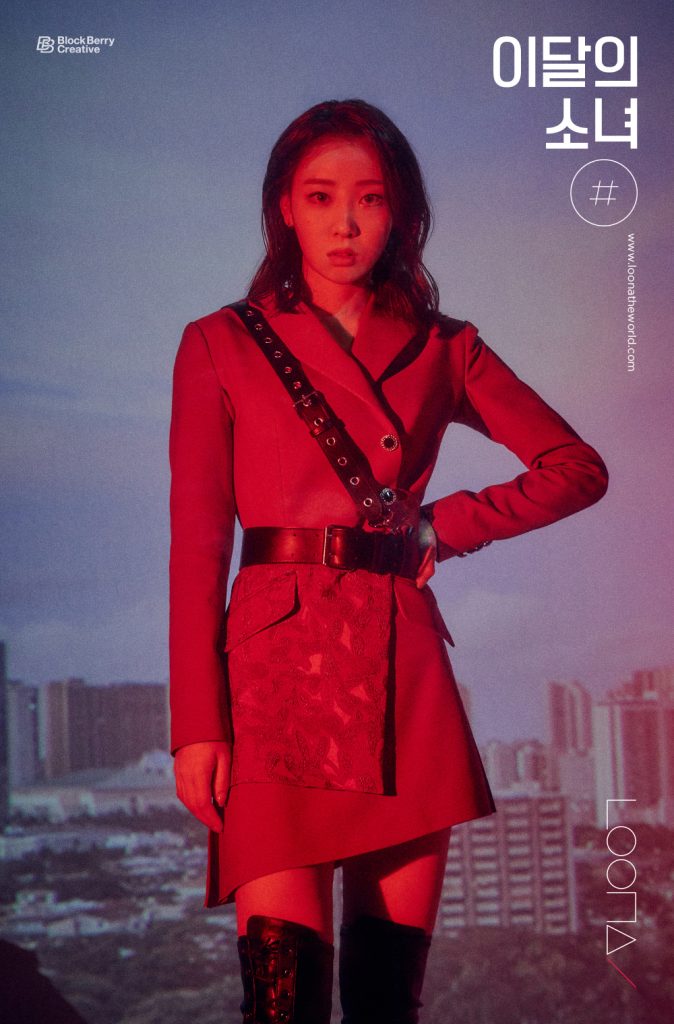
Perhaps cutting back on either just the vocals or the instrumental would have been a better choice to create a more jointed, adhesive sound. Otherwise, carrying the sound of the song’s bridge towards earlier verses would have perhaps made the track more engaging. The bridge is by far the best part of “So What”, and organically builds up to a bombastic finale chorus without giving off the impression that it is trying too hard. It provides much-needed relief from the largely overwhelming track.
This matter of unbalanced production is obvious in other tracks as well. “365” is a great track to showcase the vocal qualities of the members; however, it does little to stand out as a ballad track. “365”‘s goal is to be beautiful in its simplicity, but unfortunately the instrumental has been dialled down a little too low to leave a lasting impact. Even though the ballad has tasteful vocal harmonies in the chorus, it could have helped to build up on the instrumental layering as the track progressed. Contrary to expectations, there is little variation and therefore little to allure a listener to track. It is pleasant, for sure, but it lacks the instrumentation to make it memorable.
That being said, there are gems to be found in this mini-album, nonetheless. “Oh (Yes I Am)”, for one, stands out as a b-side track. The song is a burst of ethereal, delightful energy. The presence of xylophones and percussions — paired with the airy and buoyant vocals — brings across a light-hearted track about finding yourself.
Miracle beyond fantasy, oh
I grow so much closer to myself
See the real me I’ve waited so long for
The end of the secret: Yes I’m there, yes i’m there, yes i’m there.
The door I reached: a brilliant myself (I’ve met)
Yes I am, yes I am, yes I am.
A call towards me,
Oh, the loud ringing sound,
was it me that I found.
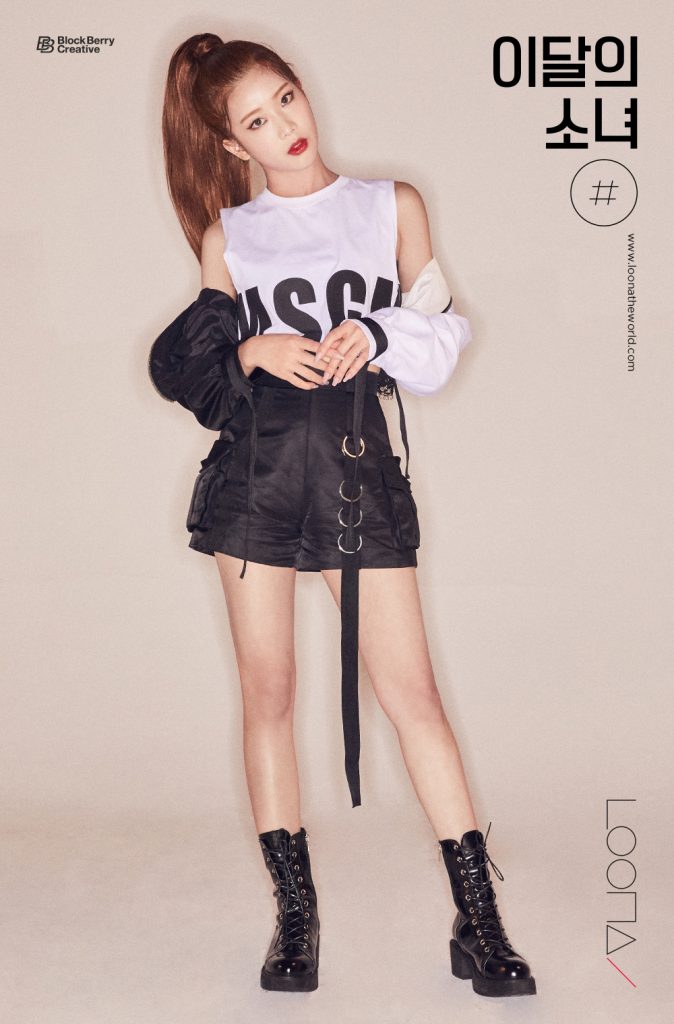
“Oh (Yes I Am)” is an example of how minimalistic instrumentation does not have to equate to boring. Even though the pre-chorus only has a light presence of xylophones and percussions, they are played in staccato beats to keep the listener on their toes. This builds up to a restrained explosion of wavy synth layering in the chorus. Added to this is the point of how Loona’s airy vocals take on a more grounded and deeper tone in the chorus as well, leaving the listener with an impressionable track.
Similarly, love song “Ding Ding Dong” is also one of the better songs from #. It is a song that really highlights their vocal capabilities, with a filled-out chorus, a few high notes here and there, and a delightful vocal harmony amongst the members. “Ding Ding Ding” comes across as a well-thought-out and elevated track that brings attention to Loona’s vocal range. While there is not as much instrumental variation, the track remains captivating due to the versatility brought about the different singing styles.
Number 1, on the other hand, is a bridge between the weaker and stronger songs of the EP. It has a similar sound to “Oh (Yes I Am)” with a spaced-out but deep percussions instrumental. This contrasts sublimely with Loona’s higher-pitched vocals and it could have tipped # to be a much stronger EP. However, the lack of vocals in the chorus is what scores it slightly lower. If the chorus had been vocally filled with more than “ddu ddu ddu ddu ddu ddu ru ddu ru my number one”, it could have easily been one of the best tracks on the EP. Nonetheless, it is a refreshing and enjoyable track to listen to, especially as it falls after “So What”.
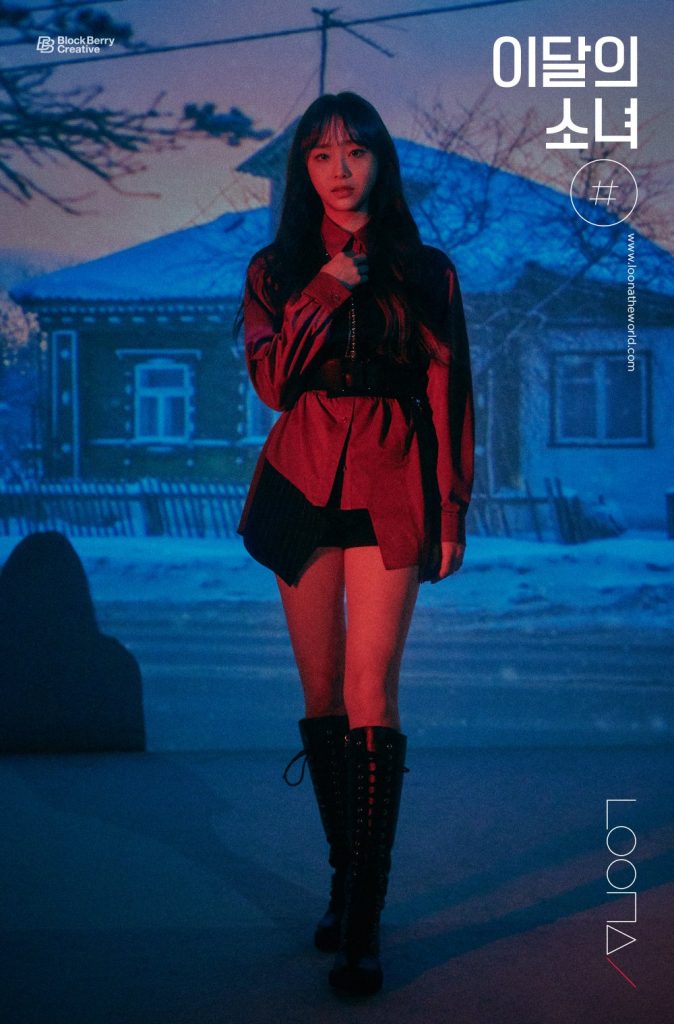
However, despite these redeeming aspects, # leaves one underwhelmed due to the lack of cohesiveness and direction in the album. While “Oh (Yes I Am)” and “Ding Ding Dong” are notable tracks, they drown in the lack of thematic connection within the EP and the vastly different genres between just five songs. Songs like “So What” and “Oh (Yes I Am)” are about becoming confident in yourself. Conversely, “365”, “Number 1”, and “Ding Ding Dong” are love songs, or, at least in which the persona is talking about their relationship with someone else. There is a scant link between the tracks.
Had the production been done to either forego a theme or a certain sound, there would still have been some sort of cohesiveness within the EP. For example, they could have varied all the genres but kept the theme of the songs to be about self-confidence. Or, the genres could have been somewhat similar but the themes about relationships with self and others could have explored. EPs usually have less space for exploration and experimentation for the sole reason that they have few songs to make an impression; the challenge is to create an experience for the listener within these limited tracks. But with both thematic and genre links to cohesiveness forgone, Loona’s # feels lost.
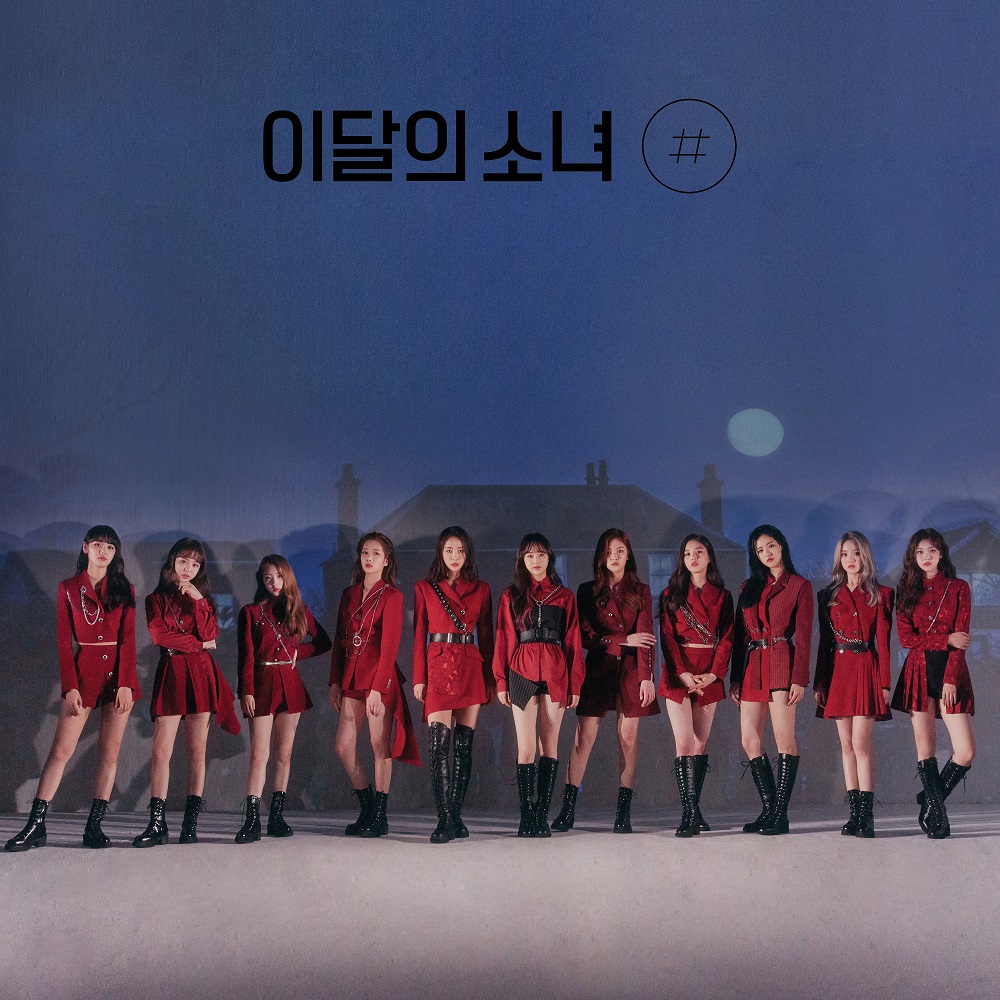
This latest release gives off the impression that # was put together in a rush, which is a pity because Loona has put out skilful albums since their debut. Despite it only being slightly over a year since their debut, they have steadily increased their presence as a K-pop group. And while experimentation and growth are natural in any group’s discography, I hope their creative team take more time to plan out and produce future releases.
(YouTube. Color Coded Lyrics. Images via: Blockberry Creative)
